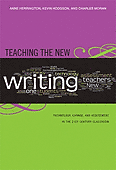20:59Peggy George: Hi Paul and Nicole
21:00Paul Allison: Hi Nicole. Please join us in the Hangout ON Air.
21:00Paul Allison: Hi Peggy.
21:00Peggy George: I love the ideas you're discussing tonight!!
21:01Peggy George: Hi Karen!! Great to see you! Hope you're keeping warm!
21:01karen (@kfasimpaur): Greeting, everyone!
21:01Peggy George: audio and video is great! :-)
21:02karen (@kfasimpaur): Hi, Peggy! Good to see you. (I've missed you since K12 Online wrapped up. :)
21:02Peggy George: that bug is no fun!!!! I've had it for several weeks! Finally stopping my cough!
21:03Peggy George: me too Karen!
21:04Peggy George: Hi monika! Great to see you!
21:04monika: hello
21:05Peggy George: Hi Chris!!
21:06karen (@kfasimpaur): Hi, Monika. Join us in the hangout?
21:06Chris Sloan: Hi all
21:07karen (@kfasimpaur): Thanks, Peggy. Very neat.
21:07Peggy George: Kids just know when their parents are preoccupied on the phone or computer :-) Play time!
21:10Peggy George: are any of you participating in the Hour of Code?
21:11karen (@kfasimpaur): There's a good webinar coming up on the benefits of teaching kids to code w/Mitch Resnick and others...looking for the link
21:11Peggy George: thanks :-)
21:12Peggy George: Wes Fryer just published a free ebook on programming with Hopscotch on the ipad :-)
21:12Chris Sloan: I have a student who wants to do something with the hour of code next week
21:13Chris Sloan: She told me that I should arrange to have kids join her after school next week.
21:13Chris Sloan: So I guess I'm doing it too
21:13karen (@kfasimpaur): :)
21:13Peggy George: cool Karen! That's tomorrow :-)
21:13karen (@kfasimpaur): I can't believe it's Dec.!
21:15Peggy George: That souns terrific! (Shantanu) :-)
21:20karen (@kfasimpaur): I haven't jumped itno the latest Scratch yet....
21:21Peggy George: link to Wes's ebook about Hopscotch
21:21Peggy George: the new Scratch is fun :-) web based :-)
21:27Peggy George: that looks like a wonderful conversation on that blog post!
21:31Chris Sloan: pretty impressive work being done in "advisory"
21:31karen (@kfasimpaur): no kidding!
21:36Peggy George: Shantanu is doing some fantastic things with his students! He needs a whole show to share it all with us :-)
21:37Peggy George: I love the idea on the Titanpad of encouraging students to create projects for each other. :-) & then connecting with each other via Skype or GH
21:37Chris Sloan: Agreed Peggy.
21:37Chris Sloan: Right now I've been trying to collaborate with another school in Philly via Popcorn
21:38Peggy George: how is that working?
21:39Peggy George: that would be a powerful experience for the students!
21:40Peggy George: could you focus the hangout on one studen'ts blog post?
21:40Peggy George: and have that student facilitate the conversation?
21:41unnamed: Use fishbowl -- kids in front of camera to converse, others behind, and can trade places.
21:41Peggy George: that's a very effective strategy!! fishbowl!
21:41Peggy George: they can learn as much by watching sometimes as they can participating :-)
21:42Sheri Edwards: This is Sheri: I don
21:42Peggy George: love what johanna is describing!!
21:42Peggy George: Hi Sheri :-)
21:42Sheri Edwards: Oh, now my chat is working again.
21:42Sheri Edwards: Hello all.
21:43Peggy George: isn't that frustrating when it freezes up and you're in the middle of typing something!
21:43Peggy George: great to see you!!
21:43Peggy George: I want to be in the virtual fishbowl for that discussion!!! Sounds amazing!
21:45Peggy George: I love hearing these stories/experiences!
21:45Peggy George: sounds like informal is much more successful than formal!
21:47Peggy George: even though it's informal I still think it needs a purpose/focus so they feel like they have something to talk about
21:47unnamed: hello, I am lurking, (Kevin)
21:48Peggy George: totally agree Paul!!! we're on the same wavelength
21:48Peggy George: Welcome Kevin! You can add your name at the top of this chat and claim your color :-)
21:48Sheri Edwards: Hi Kevin. I think his name will show up on the second input. That's what mine did.
21:54Peggy George: Thanks for posting the link to Shantanu's Google Doc
21:55Peggy George: lost the connection to chat and had to refresh page
21:56karen (@kfasimpaur): we're back...
21:56Peggy George: I love the idea about connecting with the senior projects! process as well as content :-)
21:56karen (@kfasimpaur): Hi Sheri and Kevin. (belated)
21:56Sheri Edwards: Flash update interrupted my connection :)
21:57Peggy George: weird things happening!
22:01Peggy George: that sounds like such a powerful experience and creating a video takes it to another level!
22:01karen (@kfasimpaur): truly
22:01Sheri Edwards: That is amazing. What a wonderful project.
22:02Peggy George: incredible!! it's something they will remember forever!
22:02Kevin Bolshaw: Suggested reading: The Circle, by Dave Eggars
22:02Sheri Edwards: Thanks, Kevin
22:04Peggy George: these are great ideas!!!
22:05Peggy George: let's absolutely continue this conversation!! very exciting ideas! you are all so inspiring!
22:05Kevin Bolshaw: possible hook for students: making mini video productions
22:05Kevin Bolshaw: (use for hangouts)
22:05Sheri Edwards: Thanks.
22:05Peggy George: absolutely Kevin!!
22:06karen (@kfasimpaur): Good night, everyone. Thanks for being here. (I agree Kevin.)
22:06karen (@kfasimpaur): See you next time.
22:06Kevin Bolshaw: Sorry to be late and I need to connect, thanks for sharing
22:06Peggy George: thank you all!! see you next week!
22:06Peggy George: come back next week Kevin :-)
22:07Kevin Bolshaw: I just need a little prodding : )
22:07Peggy George: :-)
22:07Peggy George: we all do
22:07Peggy George: I subscribe to the calendar so it's always on my google calendar. Really helps!


